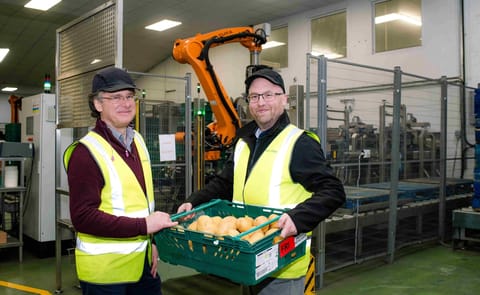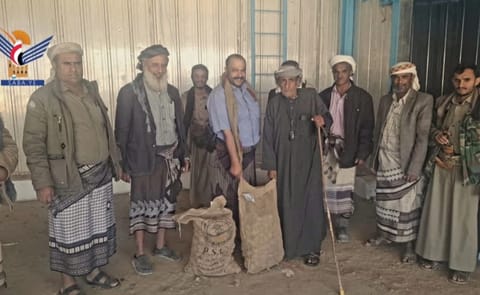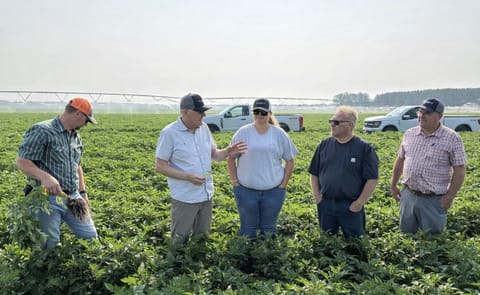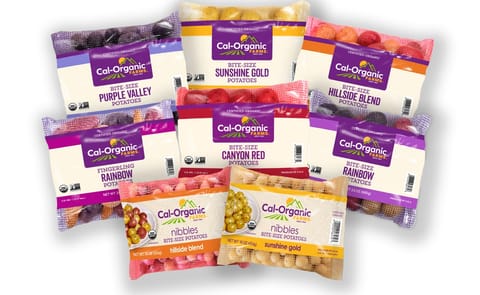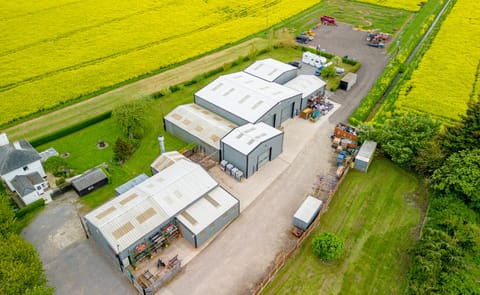Dr BP Singh, CPRI: Potato important for Nutritional Security of India.
Solapas principales
Dr BP Singh, CPRI: Potato important for Nutritional Security of India.

On the opening day of the India International Potato Expo on Thursday, Dr BP Singh, director, Central Potato Research Institute, Shimla, said potato played an important role in the nutritional security of the country.
“The challenge of food security is over, with abundant wheat and rice being grown in the country, but it is not providing nutritional security. We have to depend on potatoes to give proper nutrition to the country,” Dr Singh added. According to him, consumption of potatoes doesn’t lead to obesity.
About the contribution of the tuber crop to the economy, he said potatoes alone contributed four times more than wheat and rice to the nation’s gross domestic product (GDP). The potato production has grown from 1.5 million tonnes in 1949 to 40 million tonnes in 2008. “By 2050, we want the production to reach more than 200 million tonnes, which is possible with research,” he said.
The Indian representative of the United Nations’ Food and Agriculture Association, Kevin D Gallagher, said various studies had proved that potato was a complete food. According to him, potato is grown in 134 countries.
About the difficulties faced by potato growers in Punjab, principal secretary (agriculture) Suresh Kumar said there were issues of storage, seeds not being available, and an unstable market.
Kumar said Punjab contributed 75% of the nation’s potato seed requirement because the climate was most suitable for the crop in the state, but due to lack of certification, seeds fetched less remuneration. He also announced the setting up of a potato excellence centre in Jalandhar. “Only 7-8% of the total area in Punjab is under vegetable production. Potato accounts for 56% of it,” added Kumar.
Kumar also raised issues concerning agriculture of the state, such as soil fertility, falling groundwater table, and shifting of the water table to the south-western direction. According to him, in an effort to grow more wheat and paddy, the state has lost its biodiversity.
Shri Om Prakash Dhankar, Hon’ble Minister of Agriculture & Horticulture Development, Government of India mentioned that Sustained economic and income growth, a fast growing urban population, and the increasing integration of global agri-food markets are fuelling rapid growth in demand for high-value food commodities in India. This is an opportunity for farmers, especially farmers, in India to augment their incomes and use innovation to connect with the market directly. The transition to high-value potato, however, is unlikely to be smooth. One of the major impediments is smallholders’ lack of access to markets. Local rural markets are thin, and trading in distant urban markets is not remunerative owing to high transportation and transaction costs. Besides, they also face problems in gaining access to credit, high quality inputs, improved technology, information, and services.
He also mentioned that branding of potato is very important. That would help the farmers to get better market acceptance and price of their produces. He informed the gathering that farmer education is very important in this regard to under the right kind of markets and price. In order to achieve better market position he suggested farmer cooperatives.
Dr. Sanjeev Chopra, Joint Secretary, Ministry of Agriculture, Government of India in his speech mentioned that the potato growers in India need to be connected with the market. More knowledge about the current market price and demand would help them to understand where and when to sell their products.
He raised concern over the poor transport related infrastructure condition in India. He said that in order to reach the market on time and compete with other potato growing nations India needs to develop better infrastructure.
Taking about the storage facilities he mentioned that India’s cold storage facilities are still in a very nascent stage. Private companies and government need to develop better cold storage facilities in different parts of India so that potato can be stored for longer period of time. Lat but not the least he urged for better foreign trade policy to address various challenges faced by the farmers in order to sell their products to the international market.


